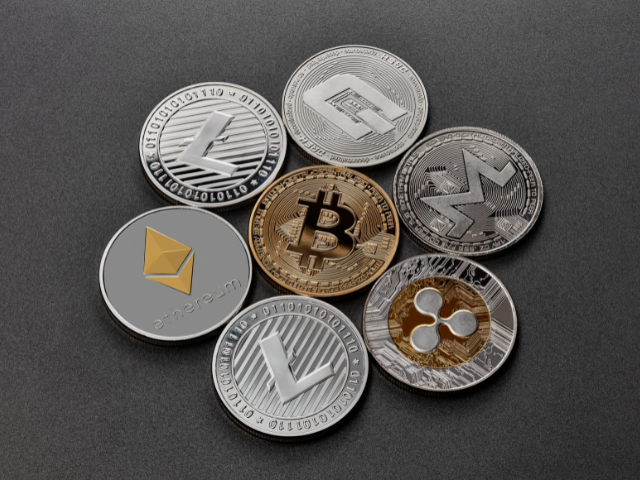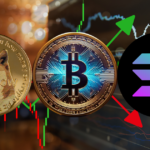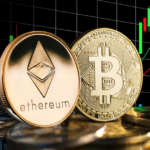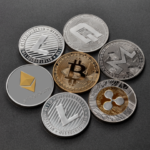A Closer Look at Deutsche Bank and Bitpanda’s Innovative Crypto Payment Solution

The partnership with Deutsche Bank allows Bitpanda to offer real-time inbound and outbound cash payments for German crypto traders using German International Bank Account Numbers.
Introduction
In a rapidly evolving financial landscape, the intersection of traditional banking and cryptocurrency services has become a focal point for innovation. The recent partnership between Deutsche Bank and Bitpanda exemplifies this convergence, offering real-time inbound and outbound cash payments for German crypto traders. This collaboration not only enhances transaction efficiency and security but also underscores the growing role of banks in facilitating cryptocurrency adoption. With regulatory clarity provided by frameworks like the Markets in cryptocurrency-Assets Regulation (MiCA), European banks are increasingly venturing into crypto services. However, technical expertise and infrastructure remain key challenges, leading banks to partner with innovative crypto platforms like Bitpanda. This article explores the significance of the Deutsche Bank and Bitpanda partnership, its implications for users, and the evolving role of banks in the crypto ecosystem.
German crypto traders will now be able to make real-time inbound and outbound payments on Bitpanda, thanks to a recent partnership between the crypto trading platform and Deutsche Bank.
The collaboration enhances transaction efficiency and security, providing robust liquidity for Bitpanda’s users in Germany.
The partnership with Deutsche Bank will allow Bitpanda to use an application programming interface (API)-based account solution, which enables the cryptocurrency trading platform to access German International Bank Account Numbers (IBANs).
IBANs are internationally agreed-upon codes that help banks safely process international transfers. Bitpanda aims to use this service to improve the efficiency and security of fund transfers. Bitpanda users in the region will get a German IBAN for deposits and withdrawals, among other benefits.
As a result, all fiat deposits or withdrawal fiat requests from Bitpanda will go through Deutsche Bank for real-time settlements.
Also Read – Which Digital currency Audit & KYC Provider Reigns Supreme on Arbitrum?
Real-time cash settlements for crypto traders
Speaking to Cointelegraph, Lukas Enzersdorfer-Konrad, Deputy CEO of Bitpanda, underscored the importance of banks in making crypto accessible to the masses.
Over the years, the platform has collaborated with major financial institutions, including Raiffeisen Bank International, LBBW and N26, to promote the adoption. He said:
“We have made a point over the last decade of focusing on trust, compliance, and security, and that’s what makes these leaps forward possible. You can’t buy trust or integrity; you have to earn it, and that’s what we’ve done.”
Deutsche Bank will provide safeguarding accounts and value-enhancing payment solutions to support Bitpanda’s streamlining of treasury operations and reconciliation processes. This is expected to ultimately lead to more robust liquidity across Bitpanda’s core markets.
Role of banks in Digital Currency adoption
Enzersdorfer-Konrad believes that partnerships ultimately benefit the end-user.
“Our infrastructure enables these banks to offer their customers the full capabilities of a first class product. It is a sign of the maturity of players like Bitpanda that we can now add Deutsche Bank as a major international bank to the list of institutions that partner with us.”
The regulatory clarity provided by the Markets in Digital Currency – Assets Regulation (MiCA) framework has encouraged Europe’s largest banks to develop solutions.
Also Read – Smart Contract Audit: Conducting a Thorough Review with Industry-leading Tools
In a previous interview with Cointelegraph, Enzersdorfer-Konrad said:
“European banks are moving into an asset class and tokenization technology because MiCA, the upcoming regulatory framework for Europe, is suddenly bringing full clarity for banks.”
Enzersdorfer-Konrad said that banks have realized their lack of technical expertise as they tend to skip research efforts and focus on bringing a new product to the market instead.
In addition, regulatory clarity gives confidence to European banks in offering services. However, they lack the technical knowledge and infrastructure, which is why they are tapping crypto services providers such as Bitpanda.
Conclusion
The partnership between Deutsche Bank and Bitpanda marks a significant milestone in the integration of traditional banking and cryptocurrency services. By leveraging Deutsche Bank’s infrastructure and expertise, enhancing transaction efficiency and security. This collaboration underscores the growing importance of banks adoption and providing regulatory clarity. With the support of regulatory frameworks like MiCA, European banks are increasingly venturing into, recognizing the need for technical expertise and infrastructure provided by innovative crypto platforms like Bitpanda.
FAQs
- What is the significance of the partnership between Deutsche Bank and Bitpanda?
– The partnership enables Bitpanda to offer real-time inbound and outbound cash payments for German cryptocurrency traders, enhancing transaction efficiency and security.
- How does the collaboration benefit Bitpanda’s users?
– Bitpanda users in Germany will receive German International Bank Account Numbers (IBANs) for deposits and withdrawals, ensuring seamless fiat transfers through Deutsche Bank.
- What role do banks play in cryptocurrency adoption, according to Bitpanda’s Deputy CEO?
– Bitpanda’s Deputy CEO emphasizes the importance of banks in making cryptocurrency accessible to the masses. Collaborations between cryptocurrency platforms and banks facilitate trust, compliance, and security, ultimately benefiting end-users.
Re-Sources – Here









 Bitcoin
Bitcoin  Ethereum
Ethereum  Tether
Tether  Solana
Solana  Lido Staked Ether
Lido Staked Ether  USDC
USDC  XRP
XRP  Toncoin
Toncoin  Dogecoin
Dogecoin  Cardano
Cardano  Shiba Inu
Shiba Inu  TRON
TRON  Wrapped Bitcoin
Wrapped Bitcoin  Avalanche
Avalanche  Chainlink
Chainlink  Polkadot
Polkadot  Bitcoin Cash
Bitcoin Cash  Uniswap
Uniswap  NEAR Protocol
NEAR Protocol  Litecoin
Litecoin  Wrapped eETH
Wrapped eETH  Polygon
Polygon  Dai
Dai  LEO Token
LEO Token  Pepe
Pepe  Internet Computer
Internet Computer  Fetch.ai
Fetch.ai  Ethena USDe
Ethena USDe  Renzo Restaked ETH
Renzo Restaked ETH  Ethereum Classic
Ethereum Classic  Aptos
Aptos  Monero
Monero  Hedera
Hedera  Render
Render  Stellar
Stellar  Cosmos Hub
Cosmos Hub  Mantle
Mantle  Arbitrum
Arbitrum  OKB
OKB  Cronos
Cronos  Filecoin
Filecoin  Stacks
Stacks  First Digital USD
First Digital USD  Immutable
Immutable  Sui
Sui  Maker
Maker  Injective
Injective